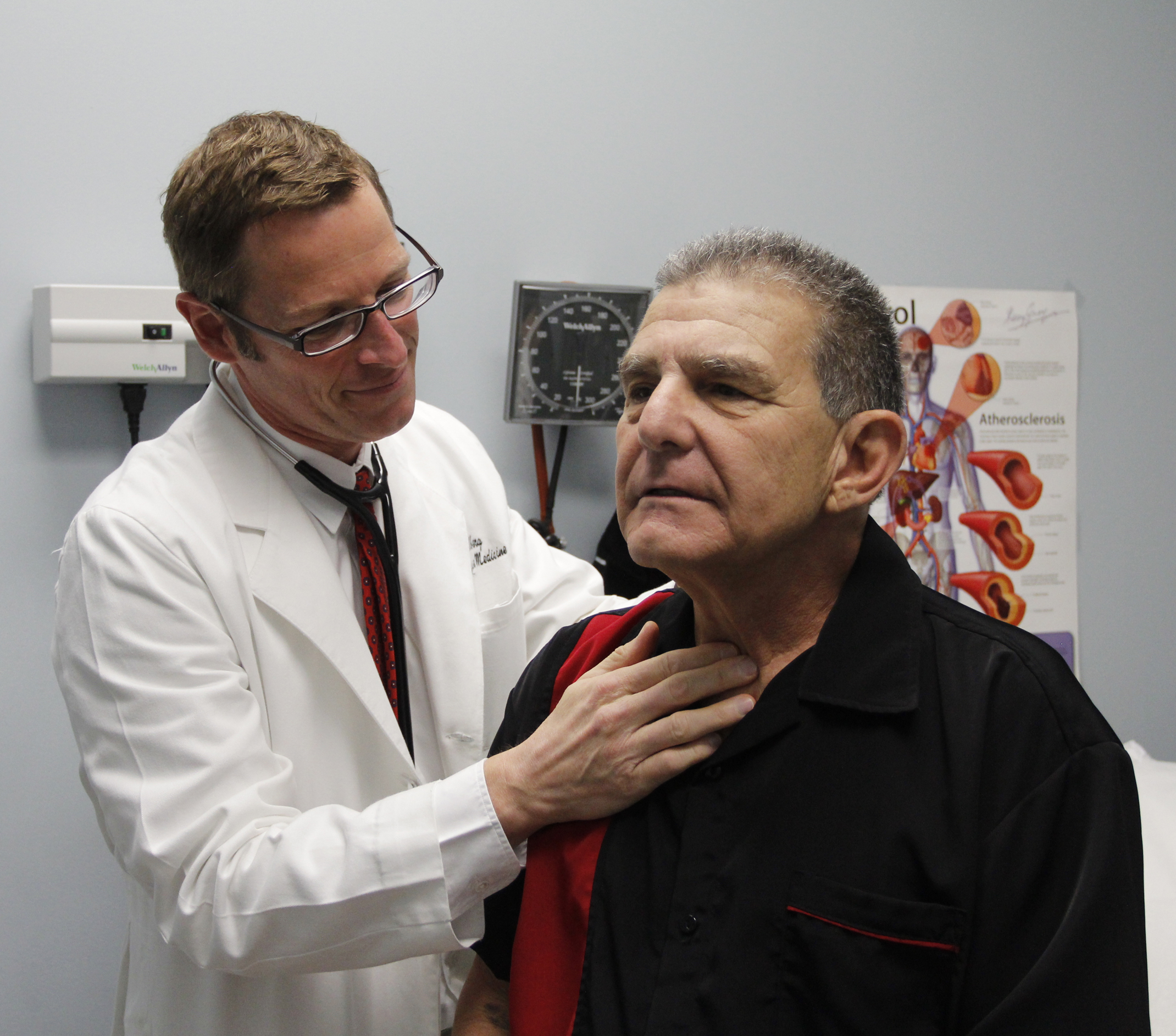EXTRA SERVICE FOR A PRICEDr. Carlton Vollberg of the Center for Comprehensive Medicine recently advised his Medicare patients they may choose among the following options to stay in his practice:Option 1: $150 retainer per person to cover office phone calls, prescription refills and referrals. Cost per visit ranges from $40 to $250 for established patients, depending on level of care.Option 2: $1,800 per person for unlimited visits, free nutrition classes, same-day appointments and travel clinic.Option 3: $6,000 per person for unlimited visits, free nutrition classes, same-day appointments, travel clinic, special office hours, home visits and Dr. Vollberg's cellphone number.CONCIERGE MEDICINESome doctors are adapting their practices to a model in which they charge patients an annual fee for more personalized and immediate medical care.
Rent, utilities and lab bills inch upward every year, one Chattanooga doctor says, but his Medicare reimbursements don't budge.
Every day he faces a choice: Zip patients through his office like a factory assembly line so he can cover his costs, or give them the time and medical attention they really need while he loses money.
So Dr. Carlton Vollberg says he is calling it quits. Beginning Monday, he will no longer accept Medicare as a reimbursement option.
Instead, Medicare patients who decide to remain at his practice can chose from a variety of payment options ranging from a retainer fee to larger annual payments for unlimited visits, homes visits and same-day appointments.
"I'm investing a tremendous amount of time and energy into these patients, and I'm losing money," Vollberg said, discussing his decision at his office on Gunbarrel Road. "It starts to begin to feel abusive."
Vollberg's new approach to managing his practice is part of a small but growing trend toward "concierge medicine." The model, which has been around for more than 20 years, calls for doctors to charge an annual fee for what is often a much smaller group of patients who get more personalized and immediate care.
Proponents say this approach allows doctors to provide better patient care, but critics argue only the wealthy and healthy can afford it. Concierge medicine, they contend, is not a viable solution to the chronic problem of patients finding affordable, accessible health care.
Nevertheless, the number of doctors practicing retainer-based care has increased, with about 1,000 to 5,000 doctors now practicing some model, according to a recent article in American Medical News.
Since Vollberg still accepts private insurance, he considers his practice a hybrid model rather than a traditional concierge practice.
He first began considering the option about five years ago, and the implementation of the Affordable Care Act solidified his decision.
Now, as Medicare faces possible cuts of up to 30 percent by the beginning of the year, he decided to move quickly.
"I'm getting out now, before the mass exodus," he said.
His patients have had mixed reactions, he said. Many of them don't want to pay for his services when they can see another doctor and use their Medicare coverage. A few have decided to stay with him and pay the fee.
"My hope is to see fewer patients but spend more time with them," he said.
While some wellness groups or psychiatrists in Hamilton County may operate under some version of concierge medicine, Vollberg said he is not aware of a general practitioner who does.
Rae Bond, who heads the Chattanooga and Hamilton County Medical Society, said she doesn't know of any either. However, if significant cuts take place next year, she expects more doctors will make changes.
One option the American Medical Association promotes is that doctors be allowed to charge an additional fee for Medicare payments, similar to a co-pay for private insurance groups. That would require a change in federal law, she said.
"I think you are going see physicians exploring a lot of options they haven't previously considered," Bond said. "We have an ongoing physician shortage, and as more senior citizens move into the area, there are very real concerns about what will happen."
Vollberg said the Medicare system pays him to treat people for diseases rather than for focusing on keeping them healthy. It is an unsustainable model of health care that he no longer wants to pursue.
If Medicare cuts do kick in next year, he expects to see a two-tier level of patient care soon. For doctors who still accept Medicaid or Medicare, there will be huge doctor shortages and long lines of patients waiting to receive care.
The second option will be a concierge service, where patients pay for their own care.
"The system is dead. It doesn't work," he said.
